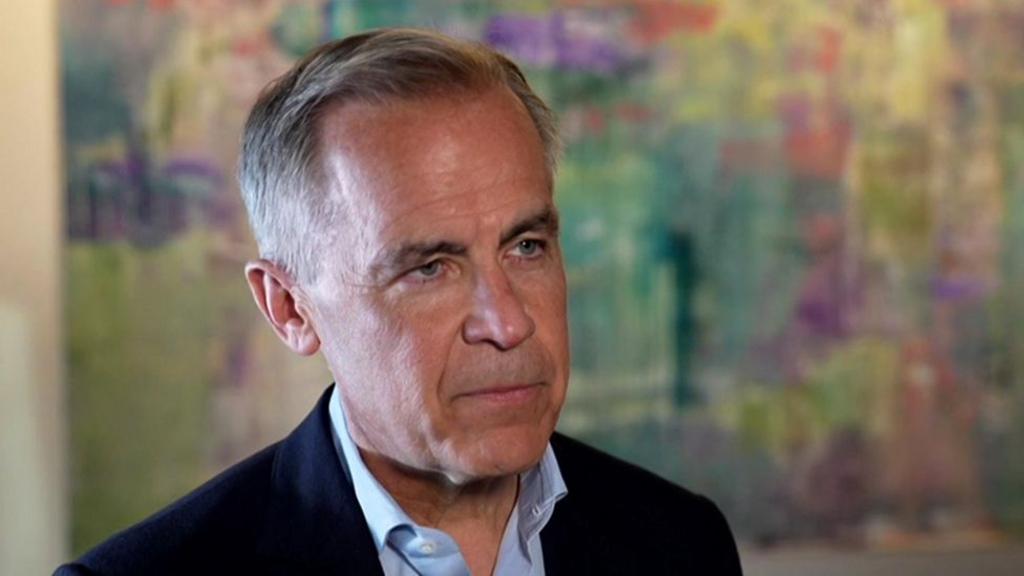Canadian Prime Minister Mark Carney has emphasized that his nation merits recognition from the United States and will only pursue trade and security negotiations with President Donald Trump “on our terms.”
In an exclusive interview with the BBC as polling stations were closing, Carney stated he would consider traveling to Washington only when substantive talks—respectful of Canada’s sovereignty—were on offer.
Following the election, Carney and Trump have spoken and reportedly agreed to arrange a meeting in the near future, according to the Canadian prime minister’s office.
“The leaders affirmed the significance of Canada and the United States collaborating as independent, sovereign entities, in pursuit of shared prosperity,” the official communiqué noted.
President Trump also extended his congratulations to Carney on his electoral victory.
Since Trump’s re-election, he has repeatedly floated the idea of Canada becoming the “51st state” of the US, a notion again brought up by the White House on Tuesday.
“The election outcome does not affect President Trump’s objective to welcome Canada as America’s esteemed 51st state,” White House deputy spokesperson Anna Kelly stated.
Carney, who delivered a landmark win for the Liberal Party in Monday’s snap election, dismissed such prospects as “never, ever going to happen.”
“Honestly, I don’t believe it will occur for any other [country]—not Panama, not Greenland, not anywhere,” he further commented.
Nonetheless, Carney sees a “win-win possibility” for Canada if it can secure favorable agreements with the US, while also deepening ties with the European Union and the UK.
The US remains a primary destination for Canadian exports, accounting for about 75% of Canada’s outbound trade.
Conversely, Canada constitutes 17% of US exports.
Canada also stands as America’s largest foreign crude oil provider. The US trade deficit with Canada, projected at $45bn in 2024, is largely fueled by American energy demands.
Bilateral ties have been strained in recent months, in part due to Trump’s “51st state” rhetoric and his references to former Prime Minister Justin Trudeau as “governor”—echoing US state-level leadership titles.
The Trump administration’s recent moves have also ignited a broader global trade standoff, initially targeting Canada with new tariffs.
The US has implemented a sweeping 25% tariff on certain Canadian goods and on all aluminum and steel imports, exempting only those covered under the USMCA trade agreement.
In response, Canada introduced approximately C$60bn ($42bn; £32bn) in retaliatory tariffs targeting US products.
Carney reiterated that future negotiations with Trump would occur “on our terms, not theirs.”
“There is scope for a productive economic and security partnership,” he told the BBC.
“But it will be fundamentally different from arrangements we’ve seen in the past.”
Carney has highlighted his global economic credentials as vital assets in navigating trade friction with the US.
Prior to his political career, Carney led both the Bank of Canada during the 2008 financial crisis and the Bank of England from 2013 to 2020, becoming the first non-Briton to hold the post.
The prime minister emphasized that Canada is the “largest client for more than 40 American states.”
“We provide the US with essential energy and supply their agricultural sector with nearly all fertilizer needs,” Carney told the BBC.
“Respect is due to Canada. We expect it—and are confident it will be restored so productive discussions can take place,” he added.
Economic integration is considerable among Canada, the US and Mexico, with billions in goods—such as auto parts—crossing borders each day.
However, the imposition of tariffs threatens long-standing industrial cooperation between these nations.
President Trump argues that tariffs will encourage domestic purchasing and ultimately boost American manufacturing and employment
While China remains Washington’s chief rival in the trade arena, the broad imposition of so-called “reciprocal tariffs”—also affecting the UK and Europe—has led many traditional US allies to pursue alternative trade agreements in response.
Carney, who supported UK Chancellor Rachel Reeves during Britain’s general election, expressed confidence that Canada and the UK could finalize a pending free trade agreement, though he noted that around 95% of current trade between the two nations is already tariff-free.
“There are opportunities to deepen integration with like-minded partners, be it in trade or defense. Those discussions have commenced, and the potential is significant,” he said.
UK Prime Minister Sir Keir Starmer, in his message congratulating Carney, said: “I look forward to strengthening our cooperation on defense, security, trade and investment.”
Carney identified the June G7 summit in Canada as a decisive moment for the future trajectory of the global trade dispute, saying the event would “test whether the G7 remains the most like-minded group of leading economies.”
The summit coincides with the expiration of a 90-day pause on several US tariffs.
Here’s what to watch following a projected Liberal Party victory.
US President Donald Trump and Prime Minister Mark Carney spoke following Canada’s general election.
Preliminary results indicate the Liberals will secure enough seats in the Commons to govern.
Following the close of polls, Carney told the BBC that future relations with the US would be “on our terms.”
Perdue, a longstanding critic of Beijing, has advocated for a ‘strategic’ and ‘nuanced’ approach to China.

